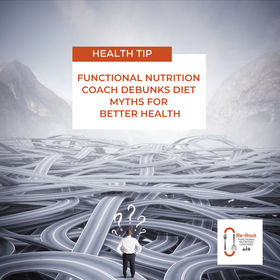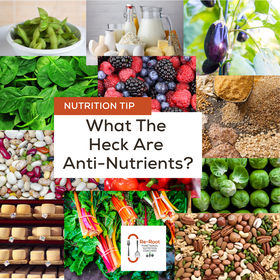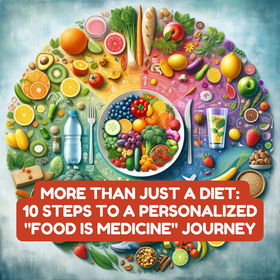
From Red to Green: How Different Colors of Vegetables Can Support Your Immune System, Digestion, and Cognitive Function
As a functional nutrition coach, I highly recommend incorporating a wide diversity of colors of vegetables into your diet to support optimal health.
Vegetables are rich in essential nutrients, including fiber, vitamins, minerals, and phytonutrients.
These plant-based compounds provide a wide range of health benefits, including supporting your immune system, digestion, and cognitive function.
Each color of vegetable offers a unique set of phytonutrients that can help protect your cells from damage caused by free radicals.
Additionally, the fiber in vegetables can help regulate your digestion and support a healthy gut microbiome, which is essential for overall health.
Let's take a closer look at the phytonutrients found in different colored vegetables:
Red Vegetables:
Tomatoes, red peppers, and beets are rich in lycopene and anthocyanins. Lycopene has potent antioxidant properties that can help reduce the risk of certain cancers, while anthocyanins can help improve cognitive function and support cardiovascular health.
Orange Vegetables:
Carrots, sweet potatoes, and pumpkins are rich in beta-carotene, which is converted to vitamin A in the body. Vitamin A is crucial for vision, immune function, and skin health.
Yellow Vegetables:
Corn and yellow peppers contain lutein and zeaxanthin, which can help protect against age-related macular degeneration.
Green Vegetables:
Broccoli, kale, and spinach contain a variety of phytonutrients, including chlorophyll, sulforaphane, and lutein. Chlorophyll has detoxifying properties, while sulforaphane supports the liver's detoxification process. Lutein can help protect against age-related macular degeneration.
Blue and Purple Vegetables:
Blueberries, eggplant, and purple cabbage contain anthocyanins and resveratrol, which can help improve cognitive function, support cardiovascular health, and reduce inflammation.
White Vegetables:
Cauliflower and mushrooms contain beta-glucans and quercetin. Beta-glucans can help support the immune system, while quercetin has anti-inflammatory properties.
To incorporate a wide diversity of colors of vegetables into your diet, aim for at least five servings of vegetables per day, with a variety of colors in each meal.
Experiment with different ways of preparing vegetables to make them more enjoyable, such as roasting or grilling.
You can also try incorporating new vegetables into your diet by adding them to soups, stews, and salads.
Eating a wide diversity of colors of vegetables is crucial for optimal health.
As a functional nutrition coach, I encourage you to make vegetables a primary part of your diet and experiment with incorporating a variety of colors to support your immune system, digestion, and cognitive function.
The Mediterranean diet is a great way to incorporate a wide variety of colorful vegetables into your diet.
Here's a delicious and easy recipe that incorporates all of the different colored vegetables we discussed:
Ingredients:
- 1 medium eggplant, diced into 1-inch cubes
- 1 medium zucchini, diced into 1-inch cubes
- 1 medium yellow squash, diced into 1-inch cubes
- 1 red onion, diced
- 1 red bell pepper, seeded and diced
- 1 yellow bell pepper, seeded and diced
- 1 cup cherry tomatoes, halved
- 3 cloves garlic, minced
- 3 tablespoons extra-virgin olive oil
- 1 teaspoon dried oregano
- 1 teaspoon dried basil
- 1/2 teaspoon dried thyme
- Salt and pepper to taste
Instructions:
- Preheat the oven to 425°F (218°C).
- In a large bowl, toss together the eggplant, zucchini, yellow squash, red onion, red and yellow bell peppers, cherry tomatoes, garlic, and olive oil until well coated.
- Sprinkle the dried oregano, basil, thyme, salt, and pepper over the vegetables and toss again to coat.
- Spread the vegetables evenly in a large baking dish or on a baking sheet.
- Roast the vegetables for 25-30 minutes, or until tender and lightly browned, stirring once or twice during cooking.
- Serve the roasted vegetables over a bed of quinoa, brown rice, or mixed greens. You can also top the bowl with a dollop of hummus or a sprinkle of feta cheese.
This recipe is not only delicious but it's also packed with a wide variety of colorful vegetables that provide a range of health benefits. By incorporating more recipes like this into your diet, you can support your immune system, digestion, cognitive function, and overall health.
Looking for 1:1 support to help and guide you with how to get more nutrient-dense vegetables into your diet and learn more about my functional nutrition coaching programs, please schedule our free 30-minute discovery call with Joseph at Re-Root at https://p.bttr.to/3kiqI71.
You've got this!
Check out my website at https://rerootnutritioncoach.com/ to learn more about my practice.







